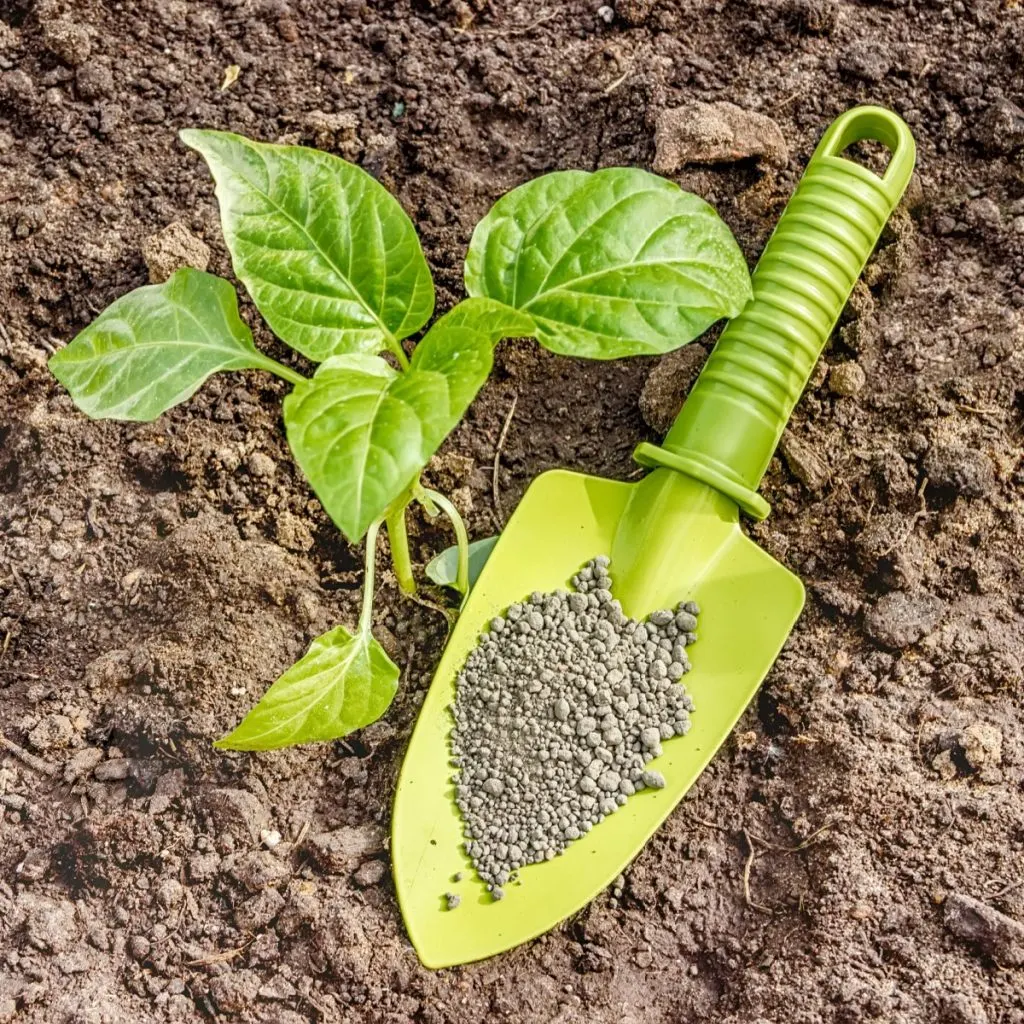Check Out the Best Fertilizers for Peppers and Enhance Your Garden's Yield
Check Out the Best Fertilizers for Peppers and Enhance Your Garden's Yield
Blog Article
Organic Vs. Synthetic Fertilizers: Which Is Best for Supporting Healthy Pepper Plants?
In the realm of supporting healthy and balanced pepper plants, the choice between natural and artificial fertilizers stands as a critical decision with significant effects. While both alternatives goal to supply essential nutrients to support plant growth, the nuances of their influence on the soil, plant health and wellness, and the environment spark a discussion that mirrors throughout the horticulture area. Understanding the distinct advantages and potential pitfalls of each fertilizer kind is important for pepper growers looking for to enhance their yields while keeping a lasting and eco-conscious strategy.
Advantages of Organic Fertilizers
Organic plant foods use a sustainable and environmentally-friendly technique to beneficial pepper plants, supplying vital nutrients without making use of artificial chemicals. These all-natural fertilizers are stemmed from natural sources such as garden compost, manure, bone meal, and algae, advertising soil health and biodiversity. Unlike artificial plant foods, organic alternatives release nutrients gradually, making sure a consistent and balanced supply for pepper plants to thrive.
One substantial benefit of natural plant foods is their capability to enhance dirt structure and water retention. By improving dirt health, organic plant foods advertise advantageous microbial task, which assists in nutrient uptake by pepper plants. Additionally, organic plant foods lower the risk of chemical run-off, securing water sources from contamination and guarding the environment.
Additionally, natural plant foods contribute to long-term dirt fertility by advertising the development of useful dirt organisms. These organisms assist damage down organic matter, launching nutrients in a kind that is easily available to pepper plants. best fertilizers for peppers. By cultivating a healthy and balanced soil environment, natural plant foods support lasting pepper growing practices that benefit both plants and the setting
Drawbacks of Artificial Plant Foods
Synthetic fertilizers, in comparison to their natural equivalents, pose different disadvantages when used to nourish pepper plants, affecting both plant health and environmental sustainability. One major drawback of artificial plant foods is their propensity to seep nutrients from the soil rapidly. This rapid leaching can lead to nutrient inequalities in the dirt, triggering plants to experience from deficiencies or toxicities. Furthermore, synthetic fertilizers can damage valuable dirt microorganisms, such as earthworms and valuable microorganisms, interrupting the soil community's balance.
In addition, the overuse of synthetic plant foods can contribute to water pollution. Excess plant foods not absorbed by plants can remove into water bodies, leading to eutrophication, where algae blossoms deplete oxygen degrees in the water, hurting marine life. Moreover, synthetic pop over here fertilizers are generally originated from non-renewable resources, such as nonrenewable fuel sources, contributing to carbon emissions and ecological deterioration during their manufacturing.
Nutrient Absorption Comparison
When comparing synthetic and organic fertilizers in terms of nutrient absorption, organic plant foods have the benefit of supplying an extra well balanced and slow-release resource of nutrients. Organic plant foods have a variety of macro and micronutrients that are not only advantageous for the plants however likewise advertise healthy and balanced dirt microbial task, which assists in nutrient uptake.
In addition, natural fertilizers enhance soil structure and water retention capability, enabling pepper plants to accessibility nutrients extra successfully. This improved soil quality helps with root development, allowing much better nutrient absorption. Artificial plant foods, although originally enhancing plant development as a result of their high nutrient focus, might prevent long-term nutrient absorption by derogatory dirt wellness over time.
Environmental Impact Considerations

On the other hand, artificial fertilizers, although often even more promptly available and focused to plants, can have damaging effects on the setting if not used appropriately (best fertilizers for peppers). Their production needs high energy inputs, bring about greenhouse gas discharges and adding to climate adjustment. The overflow of excess artificial fertilizers can infect water sources, leading to eutrophication and hurting aquatic environments.
Ideal Fertilizer Practices for Peppers
When feeding pepper plants, maximizing nutrient uptake and reducing ecological influence are essential factors to consider. To achieve this, it is vital to her explanation adhere to ideal fertilizer practices tailored to the certain demands of pepper plants. One essential method is to do a dirt examination before applying any type of plant foods. This test can establish the pH degree of the dirt and recognize any kind of nutrient shortages, leading you in picking one of the most ideal plant food formula.
One more essential practice is to fertilize pepper plants at the correct time. Typically, peppers take advantage of getting fertilizer at planting and after that once more when they begin to flower. Over-fertilizing can result in nutrient imbalances and harm the plants, so it is essential to adhere to suggested application rates.
Additionally, selecting a balanced fertilizer with an NPK proportion that fits pepper plants' needs is fundamental. Inevitably, combining natural and synthetic fertilizers carefully can aid nurture healthy and balanced pepper plants while minimizing environmental influence.
Conclusion
:strip_icc()/BHG-Growing-Peppers-Indoors-EzgaEnB7KML9Ym_plkvuxK-9398f1341d86483083862533ae7622db.jpg)
Organic plant foods offer an environmentally-friendly and sustainable technique to nourishing pepper plants, supplying essential nutrients without the usage of synthetic chemicals. Unlike Learn More Here artificial fertilizers, natural options release nutrients gradually, guaranteeing a balanced and consistent supply for pepper plants to thrive.
Artificial fertilizers, in comparison to their organic counterparts, present various negative aspects when utilized to nurture pepper plants, influencing both plant health and environmental sustainability. When contrasting natural and synthetic plant foods in terms of nutrient absorption, organic fertilizers have the benefit of giving a more balanced and slow-release resource of nutrients.Furthermore, organic fertilizers improve dirt framework and water retention ability, allowing pepper plants to gain access to nutrients more efficiently.
Report this page